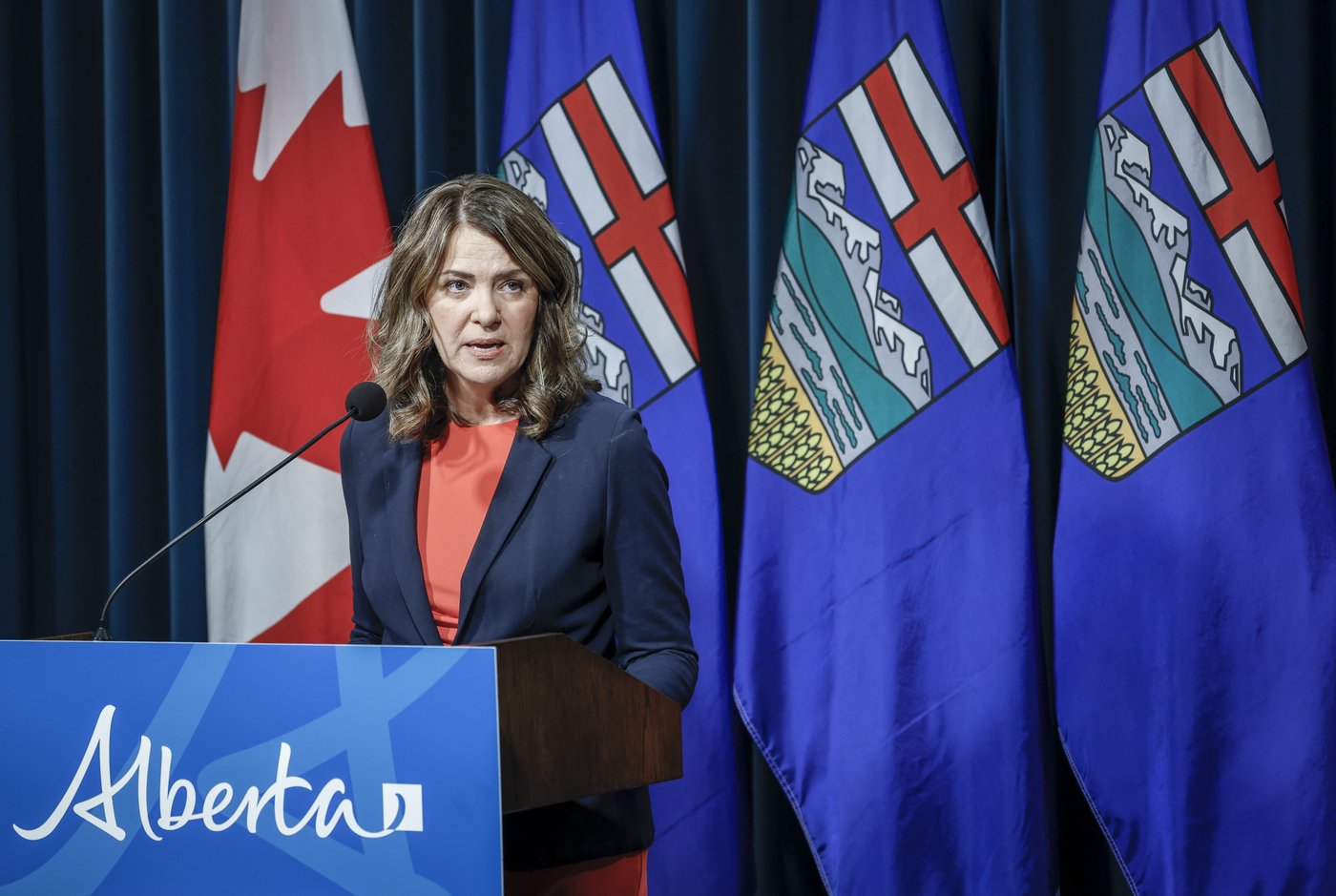Elevate your local knowledge
Sign up for the iNFOnews newsletter today!
Sign up for the iNFOnews newsletter today!
Selecting your primary region ensures you get the stories that matter to you first.

CALGARY — Alberta Premier Danielle Smith says she’s on board with Prime Minister Mark Carney’s second batch of key major projects picked for potential fast-track approval.
Smith says she’s encouraged that many are resource-based and primed for generating royalties and tax revenue.
“This is going to be good for the country,” she told reporters in Calgary.
Carney announced Thursday that the seven additional energy and infrastructure projects are being referred to his government’s major projects office. An initial list of five was announced in September.
The additions include a nickel mine in northern Ontario, a hydroelectric project in Iqaluit, and a transmission line and an LNG project that are both in northwest British Columbia. Two mineral mines, located in Quebec and New Brunswick, are also on this list.
Not on the list is a bitumen pipeline that Smith and her government have been advocating for.
Her office said negotiations with Ottawa on a pipeline are ongoing.
“Currently, we are working on an agreement with the federal government that includes the removal, carve out or overhaul of several damaging laws chasing away private investment in our energy sector, and an agreement to work towards ultimate approval of a bitumen pipeline to Asian markets,” Smith said in a statement shortly after Carney made the announcement.
She said talks are coming down to the wire and she expects an answer in the coming days on whether Carney’s government will support Alberta’s energy goals or stick to laws and regulations put in place under former prime minister Justin Trudeau.
Smith had said that she wanted an agreement in place before this weekend’s Canadian Football League Grey Cup showdown.
Carney told reporters there are still items to be ironed out “over the coming weeks,” despite the productive “meeting of minds.”
“This is a very important process for the province, for the country,” Carney said.
“We want to make sure we’re doing it right.”
When asked what he’s calling on Smith to do for any potential deal, Carney said he wants to see Alberta make necessary investments to put the province and its oil and gas industry “in a position for the energy future.”
“The future of energy, clean and conventional, is low risk … it’s low cost and it’s low carbon,” he said.
Carney said he wants to see the emissions intensity of Alberta’s marquee industry reduced, and noted it’s already trending in that direction.
He also said he wants Alberta’s carbon market and regulation to be more effective, though he didn’t provide details.
“That’s an important element for future investment certainty going forward,” Carney said.
B.C. Premier David Eby, who has publicly sparred with Smith over her government’s pipeline pitch to the west coast, said Thursday he’s still frustrated it’s being discussed.
“There is no route, there is no proponent, there is no project,” said Eby. “It is a figment of a communication person’s mind in Alberta.”
“If it goes ahead, it will only be because it is fully funded by taxpayers to the tune of $40 to $50 billion.”
Smith, said later Thursday that finding a company to spearhead a new pipeline would be easier if and when Alberta and Ottawa strike a deal on a new regulatory future.
“It’s really a regulatory issue, and so that’s why we want to front it until we can get to that point,” she said.
Smith also said she had no expectation a pipeline would be on Carney’s list Thursday. The time frame she has in mind for such consideration is next spring.
She said she’s not concerned the Grey Cup deadline might come and go without a signed deal.
“We still want to make sure that we’re all heading in the same direction,” Smith said, adding she thinks both leaders are working with a sense of urgency.
“I hope we can get to a point where, as the prime minister said, ‘pipelines are boring’. I would love pipelines to be boring again. I would for them to be so boring that they were never a political issue.”
So far, none of the projects Carney has referred to the Major Projects Office have been designated as being in the national interest, which would give it special treatment — such as exemptions from certain environmental laws — to help it move forward.
The Major Projects Office is tasked with reviewing projects sent to it and giving recommendations to the federal government, which has the final say on whether to give it national interest designation.
This report by The Canadian Press was first published Nov. 13, 2025.
— By Jack Farrell in Edmonton, with files Bill Graveland in Calgary and Wolfgang Depner in Victoria.
This site is protected by reCAPTCHA and the Google Privacy Policy and Terms of Service apply.
Want to share your thoughts, add context, or connect with others in your community?
You must be logged in to post a comment.